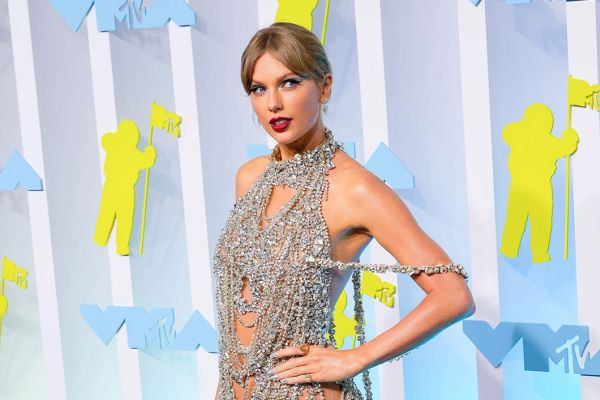Months after its system was swamped by demand for Taylor Swift’s Eras Tour, Ticketmaster apologized to Swift and her supporters during a US Senate hearing.
Due to the glitch, thousands of ‘Fifties’ were unable to purchase tickets.
Joe Berchtold, CEO of Live Nation, Ticketmaster’s parent business, told legislators on Tuesday, “We need to do better and we will.”
According to him, a bot attack was responsible for “a horrific user experience.”
Fans and lawmakers have regularly criticized Ticketmaster, which merged with Live Nation in 2010, for having too much influence over the live music sector and artificially inflating ticket prices via levies and service costs.
Senator Amy Klobuchar, chair of the US Senate committee on consumer protection, asserts that Ticketmaster is responsible for 70% of ticket sales in the United States.
“In reality, there is no alternative option. It is monopolistic, “she stated to MSNBC a year ago
Regarding the Taylor Swift tour, she continued, “The exorbitant costs, site disruptions, and cancellations that customers encountered demonstrate how Ticketmaster’s dominating market position means the corporation is not under pressure to continuously innovate and enhance its services.”
Swift herself stated that it was “excruciating” to see people struggle to obtain tickets and that Ticketmaster had told her they could meet the demand.
In its written testimony prior to its Tuesday grilling by US senators, the corporation detailed for the first time how its systems had been targeted by software “bots” used to purchase tickets unlawfully.
The attacks occurred despite the usage of Ticketmaster’s “verified fan” program, which compels customers to pre-register their interest in order for the corporation to determine whether they are actual fans planning to attend the performance.
Mr. Berchtold added,
“We anticipated a bot attack and organized accordingly.”
‘Terrible consumer experience’
“Then, we were slammed with three times more bot traffic than ever before, and for the first time in 400 Verified Fan on sales, they targeted our Verified Fan access code servers.
“Although the bots were unable to breach our systems or purchase tickets, the attack forced us to slow down and even halt ticket sales. This resulted in a poor customer experience, which we regret terribly.”
Mr. Berchtold also recognized that the firm should have staggered ticket sales “over a longer period of time” to avoid overloading its systems and that it should have “done a better job outlining fan expectations for obtaining tickets.”
As the hearing progressed, Penny Harrison was part of a small group protesting Ticketmaster outside the Capitol building.
Taylor Swift remembers spending nine hours attempting to purchase Swift tickets for her three children. She was initially upset, then agitated, and ultimately outraged.
“I was furious,” Ms. Harrison said, adding that she missed two doctor’s visits while attempting to purchase tickets all day.
“As I wait in line, I’m observing tickets being resold for $10,000 or $20,000 (£16,223),” Ms. Harrison explained. “And if you were fortunate enough to have tickets in your shopping basket, they were gone before you could pay for them.”
Mr. Berchtold reported that 2,2 million tickets were ultimately sold, with less than 5 percent showing up on resale sites, where scalpers prefer to demand inflated prices.
In response to more accusations, he stated that Ticketmaster “does not set ticket prices” and “the majority” of increased costs “go to the venue, not Ticketmaster.”
Ms. Harrison feels that anyone interested in attending a concert or sporting event in the future “must speak up, become angry, and demand change.”
Over 300 plaintiffs have launched a class action lawsuit against Ticketmaster and its parent business, Live Nation.
Fans were charged excessively exorbitant pre-sale, retail, and resale rates, according to the lawsuit.
Tuesday’s hearing by the Senate Judiciary Committee will investigate competition in the ticketing sector in response to the Swift tour catastrophe.
In addition to Live Nation, senators will hear from SeatGeek, JAM Productions, and Clyde Lawrence, an outspoken opponent of Ticketmaster’s business methods.
Live Nation accompanied its testimony with many letters of support, including one from country musician Garth Brooks, who urged US lawmakers to take a harder approach against ticket touts.
“My question is, as a nation, why don’t we simply outlaw scalping?” he wrote. “The influx of bots during a sale is a major cause of program failure.
And the one who always pays for this atrocity is the client, who should be the last to bear this burden.
However, it is unclear whether Tuesday’s hearing will result in any significant change, unless evidence of anti-competitive activities by Ticketmaster, such as unjustly pressing artists to use their services, is produced.
The corporation has repeatedly denied involvement in such activities.
Also Read: How Does Katie George, An ESPN Sporyscaster, Get Paid?





